This is a story of everyday researchers and teachers, struggling to do their job in a world pervaded by management bollocks.
This page is a continuation of the diary that started in June 2007, with the demise of UCL’s Pharmacology department (for the time being).
It continued from June 2008 to May 2009 on a separate page.
Now we continue from June 2009.
2 June 2009
Today there was a (rare) staff meeting for the Research Department of Neuroscience Physiology and Pharmacology, known locally as NPP (how’s that for a catchy brand name?). This ‘department’ has about 500 people altogether in it (we still haven’t been told exactly how many). It is, I suppose, a sign of the pervading demoralisation that it didn’t even manage to fill our smallish H.O. Schild lecture theatre. Perhaps it isn’t so surprising because even the head of this mega-department has been deprived of most of his power. Everything has moved to faculty level, so why bother going to a meeting?
It seems that the promised local hubs of adminustrators are not going to happen after all, Everything will be concentrated in one huge teaching office for the whole Faculty of Life Sciences, and one huge administrative office, They will, of course be much further away, and so much more inconvenient and much more impersonal. They will also reduce still further the contact between students and academic staff, and contribute to the accelerating trend to separate teaching and research.
But these are hard times. Money must be saved. Oddly enough, the Faculty has refused repeated requests to say what the administrative changes have cost. It is not even clear that they know. The whole process seems to have been driven my ideology rather than by efficiency (let alone by improvements in teaching or research). But never mind, because it isn’t hard to add up the salaries of all the extra administrative jobs (and raised grades for existing people)
Recurrent cost of extra administrative staff £350,000 per year,
That is what I call bad (and uttely untransparent) management. It isn’t even a month since universities secretary, John Denham, sent letters to the Higher Education Funding Council for England (Hefce) and the Learning and Skills Council (LSC) to say that savings should be made in administration costs, rather than the core university business of teaching and research, as reported in Universities told to cut admin costs, not teaching or research. The Faculty seems to doing exactly the opposite.
4 June 2009. This blog reaches it first million page loads (of which 95 percent are in the last two years). That’s over half a million unique visitors. Amazing.
8 June 2009. Problems continure unabated with my Russian cyberstalker, Svetlana Pertsovich. It is quite usual to get 30 phone calls a day, both at work and at home (one at 05.40 am this weekend) and a similar number of emails and/or comments sent to the blog (not real comments, just messages).. This morning in the lab, about 12 phone calls in quick succession. Heaven knows how many real calls I miss (please leave a message if I don’t answer). I feel desperately sorry for this unhappy and very disturbed lady, but she seems to be unable to comprehend that there is nothing I can do to help her.
10 June 2009. On 3rd June everyone was sent an email about “Shaping the Curriculum for the Global University”. This prompted a ‘reply to all’
Could you please explain what you mean by internationalisation of the principles of pharmacology, or, in the case of our summer school, the internationalisation of the matrix algebra that describes the stochastic properties of single ion channels.
When I say ‘explain’. I mean an explanation in plain English. not in HR gobbledygook
That prompted a minor flood of sympathetic replies, many of whom seem to be rather embarrassed by the constant repetition of ‘global’. Needless to say, answer came there none.
A quick check reveals that
“UCL is London’s global university: we focus on transforming the world.”
“The world’s most pressing problems are complex and systemic. Their resolution requires more than interdisciplinary collaboration; it demands partnership transcending the boundaries between disciplines.”
Who, one wonders, writes this deeply embarrassing twaddle? Could it be the Director of Grand Challenges? It’s quite as bad as the sustainable degrees.
12 June 2009, Cyberstalker in full flood after my note about her above. By 09.30 am had 20 messages on answerphone (plus more calls with no message). Each call takes a minute or two to screen, in case it is a real one. Yesterday I had one call from the Evening Standard newspaper that had to be filtered from more than 30 from Svetlana. I call that mental cruelty.
By after lunch, there were 37 phone messages. It rings incessantly. I am waiting for a phone call from the Hospitsl, but will probably miss it. This is no longer funny (make that 40, three more while typing).. And by 4 pm there were 61 messages. The phone has barely stopped ringing all afternoon. No phone call from Hospital but I could easily have missed it. I can’t screen every single one.
15 June 2009. Walking through the cloisters at lunch time, I pause to look at posters for a Bone Research meeting, Then I spot the Proctor & Gamble stand, where they were giving away reprints that bear the name of Richard Eastell, to promote their osteoporosis drug, risedronate. I asked the salesmen if he was aware of the Blumsohn case, and was told a version of that story that was totally untrue. I see no excuse whatsoever for this misrepresentation of one of the best-documented cases of its sort. Why am I still so shocked by the behaviour of big Pharma, and of some clinical academics?
18 June 2009. Some rather bad publicity for UCL in Times Higher Education this week. I’m not going to comment on the facts of the case because I barely know Professor van der Lely and because I have heard only one side of the story. It is a shame that the matter is (up to now) kept so secret. In the interests of openness, I post here a copy of the complete letter from Pinker and others. If anyone wants to send me another side of the story I’ll post that too.
The THE article says that van der Lely was “suspended over charges of insubordination”. I haven’t heard the word “insubordination” used within a university before. This is not the army, and scientists, in one sense, have to be insubordinate, insofar as they respect data over authority. Until someone says what that term actually means, speculation will, no doubt, be rife,
Although not involved in this case, I have been involved in a related one. and the procedure does seem to me to be very odd. To be excluded, and not even to have use of email, is pretty severe and to have that punishment imposed before the evidence has all been heard seems to be contrary to natural justice. It isn’t much fun for colleagues either, who have to do the teaching for someone who mysteriously, and without explanation, vanishes from College for months.
Now (26 June) the row has reached the national press, with a long report in the Daily Telegraph
19 June 2009. First job of the day: delete 32 phone messages and 22 blog comments from Svetlana. Sigh.
Yesterday saw the demolition within 24 hours of the pathetic apology for ‘evidence’ offered by the British Chiropractic Association. Once again, I found the speed and honesty of unpaid bloggers deeply impressive.
22 June 2009. I asked for the source data for the staff survey (as advertised in the summary). The summary we have been given seems to miss out some things that might (or might not) be interesting.
Amazing news that a senior lab manager can’t get a £200 printer so is unable to print orders, The “efficient central administration” (cost £350,000 per yeat) doesn’t seem to be able to decide who can authorise this very routine bit of expenditure.
23 June 2009. Yesterday was the Research staff conference. Reports from postdocs who were compelled to go (to meet their compulsory number of bullshit courses) were distinctly less than flattering. As a solution to the problems of contract research staff it was not rated highly by those to whom I spoke, as one might expect of a product of the vacuous Concordat (more on that here).
But even I was surprised to find a blog about some of the speakers on the UCL server (and here).
A phone call revealed that the Baroness Grrenfield was paid a fee for speaking (but sadly, didn’t reveal how much).
26 June 2009 Some singer called Michael Jackson seems to have died. I’d heard of him only connection with child molestation, but the mass hysteria seems to rival that after the death of Princess Diana. Each day, about 150,000 people die. About 6,700 of then died in the USA. Of these 6,700 people about 770 died under the age of 50. I expect that most of the 770 were rather more meritorious than Jackson. I wish they’d have something important on the news.
30 June 2009.. Bugger. Left leg and foot swollen after rather painful walk in the country yesterday. Persuaded by the boss to go to UCLH Accident and Emergency. Ultrasound showed thrombus below knee in left popliteal vein so now on heparin and warfarin. I’ve been an orthopaedic mess for a while but this is the first time I had any cardiovascular problem. Damnation. But thank heavens for the NHS. They did a superb job, again.
1 Juiy 2009. Skeptics in the pub, The antidote to World Science Writers conference
2 July 2009 Royal Society soiree. Fun, though on the whole I prefer the company at Skeptics in the pub.
7 July 2009 Train to Edinburgh, The East coast line has wifi, so able to post a few comments on the uncensored version of the Bosetti paper.
8 July 2009 Paton Lecture at 13,00. The past present and future of pharmacology: successes, failures and threats from managerialism and quackery. This seemed to go quite well. After the lecture and the questions, the chairman suggested that anyone who wanted to take the discussion further should go to another room, The questions and answers went on for another two hours with a group of mainly young people.
The press release for the Paton lecture was picked up only by the Times Higher Education who wrote about it under the title “Leading academic attacks tick-box science and politically correct quackery“.
Then the sleeper train back to London overnight, to get flight to San Francisco.
9 July 2009. Picked up on afternoon at SFO by Phyllis Gardner and stayed at her place in Stanford. Watched humming birds in her garden, drinking from fountain.
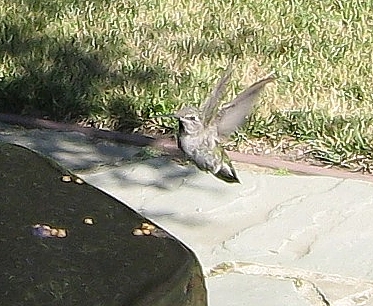
10 July 2009. Two talks at Stanford, Partial agonists and Endarkenment (US version). The latter, as always, had bigger audience. It started out with a quotation.
“Energy therapies focus on re-aligning the energy fields posited to originate from within the body (biofields) or other sources (electromagnetic fields) to promote healing. The practices include, for example, Therapeutic Touch, Reiki, as well as biomagnetics.”
Then gasps of disbelief when the source of the quotation was revealed.

11 – 12 July 2009. At the Sci Foo camp at Google headquarters in Mountain View CA. Slightly mad but met a lot of interesting people.
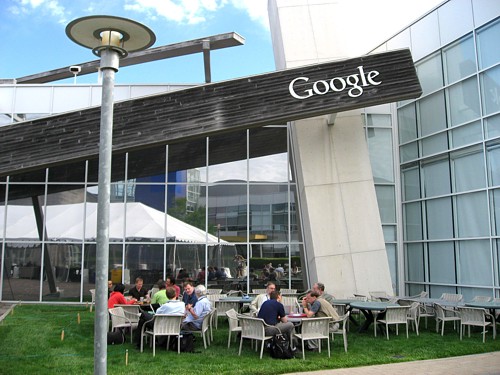
14 July 2009. Back home overnight yesterday and straight into teaching matrix algebra on our summer school course, mixed up with visits to the anticoagulation clinic and a diagnostic Left L4 nerve root block. In the midst of all this, the story about the University of Central Lancashire broke. A hectic couple of weeks.
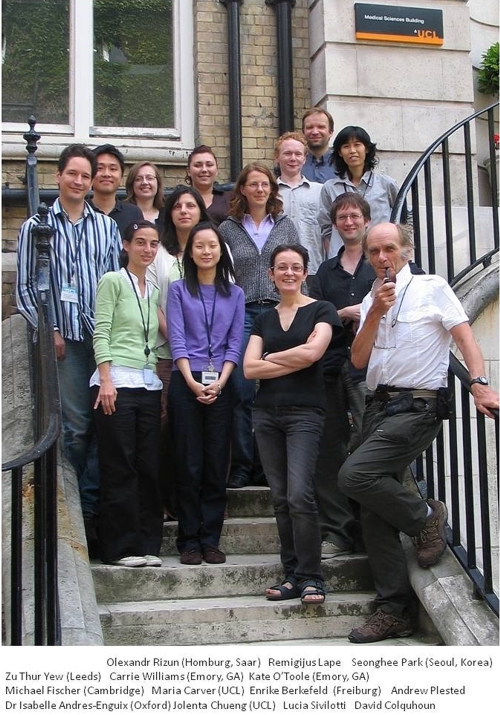
2009 Workshop: matrix methods for ion channels
29 July 2009. An email from our Corporate Communications departmemt. They have a useful web site that tells me what “tone of voice” to use when talking about UCL (no, I’m not joking). More meritoriously, we are urged to engage with the public. But we are supposed to do it not to amuse and inform, but to promote the “corporate image” of UCL This sort of stuff undermines the traditions of UCL. It brings us into disrepute (or would do, if anyone read it).
30 July 2009, Hmm, bit of a problem uncovered in post DVT imaging. I’m not sure whether I’m a victim of modern imaging technology, or a beneficiary of it.
5 August 2009. Oh dear, oh dear. Just look at this, and this. Some competition is a good thing.. Too much leads to cheating.
10 – 12 August. If you want to contact me. please use email. The cyberstalker is in overdrive. My phone has been ringing almost continuously for days, both at work and at home. This makes it rather hard to concentrate on the draft of a paper about the partial agonism of choline (or on responding to the Pittilo report). Each call means stopping to screen the call. At home the capacity of the voicemail service is usually exceeded so Margaret is left incommunicado. At times I have to unplug the phone to stay sane.
18 August 2009. Back to the problem of delivering the mail. Evidently it is too complicated for the “efficient centralised administration” to cope with. Often it lies unsorted. The solution? Appoint yet another supernumerary body to sort the mail. And they can also act as a runner because the central teaching office it will be so far away from most of us, that we have to employ someone to fetch and carry. Funny, it all worked quite well with fewer people, when it was local.
22 August 2009. Hilarious Freudian slip in an email today about the “September Enterprise Boot Camp” (this fondness for military vocabulary always seems to me a sign that the writer feels a bit inadequate).
“Applicants must ensure that funding arrangements have been organised with their respective Departments, Centres for Doctrinal Training (CDT’s), etc BEFORE applying for these electives.”
Ahem, doctoral training perhaps? Pity about the superfluous apostrophe too.
28 August 2009. When you enter the area that used to be Pharmacology, you are now greeted by a sea of locked doors, There is no office, no pigeon holes to facitate conversation, Nowhere where you can get an envelope or a whiteboard marker. The teaching office is now a long way away. The promise that we’d have local administrative hubs was broken. Morale falls yet another notch.
30 August 2009. The wonderful cartoonist skeptic, Crispian Jago, made a Top Trumps card game with skeptics on the cards, as Simpsons style cartoons. The first 26 are up and 26 more to come. Here are a few examples (click to enlarge the card).
First Ben Goldacre (of badscience.net) and Simon Singh (simonsingh.net).
Then the legal eagle, Jack Of Kent, and the great US blogger and Yale neurologist, Steven Novella (Respectful Insolence)
Two more from the USA, the original great skeptic, James Randi (James Randi Educational Foundation), and the University of Minnesota Developmental biologist and scourge of creationists. P. Z. Myers (Pharyngula blog).
And, amazingly DC, in first and second versions.
Next April another version of my card appeared, which I like much better.
31 August 2009. A beautiful day and public holiday but had to spend the whole day looking for a new car. The old Citroen XM has finally died after 200,000 miles or so.
1 September 2009. It’s hard to believe, after the derision it elicited last year, but the graduation ceremony today has repeated last year’s ludicrous sustainable degrees theme, despite embarrassed protests about it. The same sustainable degrees poster is there, the same carrots, and the same phony wickerwork attached to the bars. All that’s lacking is a PR person dressed as a yokel and chewing a straw. Maybe PR people think stuff like this is trendy. What worries me is the quality of senior management that allows it to go ahead anyway. Here is our new logo.

1 September 2009. Yet more nonsense from HR. An email pointed out that
“UCL is required by law to report any unexplained absence of 72 hours, for a member of staff who holds Tier 1 – 5 visas (or work permits).”
At first sight this seemed to be just an implementation of the new laws that require one to check on the movements of anyone who is foreign in case your postdoc decides to vanish to blow up a plane. Very sensible too, as long as the postdoc says “I’ll be away for a while because I want to blow up a plane”. The email started
“If Academic staff are going to be away from UCL for more than 72 hours, they will need to give details of their absence to the local Executive Officer within their Research Department.
This includes absences for conferences, leave and sickness absence.
This is a Border Agency requirement – that employers at all times, know the whereabouts of their staff.”
Surely they couldn’t be wanting to apply this to ALL staff? After clarification was requested (one often has to ask for clarification: HR people seem to have difficulties with plain English) it emerged that
“It has been decided after some discussion, that it would be good practice for records to be maintained in each Research Department, of absences over 72 hours”
“This also ensures that staff whether they have visas or not, are treated in the same way in respect of absences.”
Decided by whom? After discussions with whom? This ludicrous waste of time has already elicited a lot of unprintable colleagues from several senior colleagues. What worries me is that people who clearly haven’t the slightest idea about how science is done seem to think they have the power to occupy every moment of one’s time with pointless paper-pushing.
I don’t even blame the HR people entirely -that is just how they occupy their time. The real blame attaches to senior management -academics (or ex-academics) -who have allowed HR to gain quite excessive size and power. If we have to save money, try firng people who dream up batty ideas like this one.
Postscript. A senior colleague’s reply included this.
” “so as not to discriminate by requesting that only those holding visas should have this information recorded”. This is not discrimination. UK and EU nationals are entitled to work here, non-EU nationals need special permission and special conditions. For example non-EU nationals need to register their address with the Police. Does a similar “non-discrimination” argument apply now so that everyone else has to register wtih the police as well ?”
3 September 2009. A tweet from Times Higher Education came through on the googlephone during yet another false fire alarm.
Timeshighered Which V-C was described as a “megalomaniac” by a governor, who said the rest of the board were “stuffed donkeys”? http://bit.ly/o7bYY
Quickly followed the tempting link. There is plenty of competition for the title, heaven knows. but this time it was Christopher Jenks, VC of Brunel University.
6 September 2009. Some great pictures emailed from the Alps where my boss, Lucia Sivilotti, is on holiday. A male ibex, a scary crack across the path, a view down to the valley, and marmots. Gorgeous. I’m jealous,




7 September 2009. More details emerge about the sad Manchester case. The comments that followed the Times Higher Education piece got quite out of hand and they had to close the thread (and delete some comments). I certainly don’t know enough details to comment on the case, but one thing about the comments struck me as quite disturbing.
Someone writing as “bemused” actually called the whistleblower as “unscrupulous little vigilante”. I find that deeply disturbing.
Everyone knows that a few people cut corners when marking, and mostly it gets covered up. There is as much pressure not to ‘rock the boat’ in universities as in any other big organisation, There needs to be a great deal more protection for honest whistleblowers. They should be lauded as protectors of integrity. Only too often the opposite happens as, for example, in the notorious Sheffield case. And the protection of wrongdoers by university heads has been in the news again recently in the wake of the great Wyeth ghostwriting scandal, See, for example, Industry-funded medical writers vs health care reform, and Ghost writers come out of the closet, and University diaries, not to mention this blog. Most (not quite all) scientists that I know are people of great integrity. They are sometimes betrayed by unscrupulous senior managers.
13 September 2009 Got the final version of the affidavit for my complaints to the General Chiropractic Council, with 11 attached exhihibts. Got them sworn by solicitor and sent off. Must have taken hours of work by their solicitors, and a lot of money.
16 September 2009. Big debate at the Royal Institution, Ben Goldacre vs Lord Paul Drayson (Science minister) about science journalism. The Faraday theatre was packed (500 people, 450 iPhones). It was a lot of fun, though not sure it resulted in any clear conclusions. Drayson was shockingly evasive about the UK libel laws. There are accounts of the debate inTimes Higher Educationand in New Scientist. You can see the debate here. Picture shows a gathering of Simon Singh supporters outside the King’s Head pub afterwards.
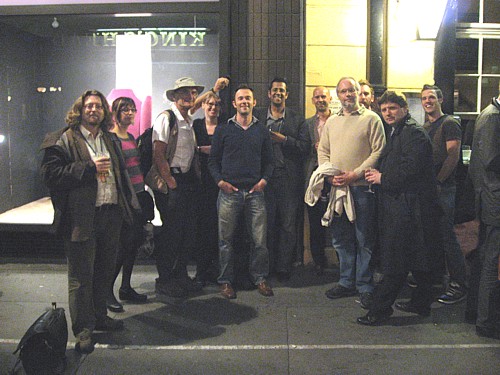
17 September 2009, Wrote a letter to the powers that be to point out that one result of the "efficient central administration" in Life Sciences is that there is now nowhere within a reasonable distance where one can get an envelope or other basic office supplies. Seems that they didn’t think of that.
Reply two days later from young administrator on professorial salary
"I’m surprised to hear this. I wonder if there has been some confusion or miscommunication."
Surprised? It’s obvious. Solution: the problem was passed down the management hierarchy, and still waiting for an answer four days later. The new hierarchical structure seems to be used as a way to pass the buck.
18 – 19 September 2009. Off to Plymouth to give my usual two lectures analysis and interpretation of single ion channel records at the Microelectrode Techniques course. This wonderful practical course has been organised every year for 26 years by the excellent David Ogden (and I’ve missed only one of them).
20 September 2009. Mail from a rather cross colleague.
“soon there will be one harrassed ineffective scientist at [my lab] and 499 administrators (most of whom will be either “on leave” or at stupid expensive training courses on leadership or risk assessments at interviews)”
Join the club.
1 October 2009. Went to a Café Scientifique event. Sounds like a good development. This one had the title "Growing Old Disgracefully", which sounded good for me. It was run by the excellent Nick Tyler of Civil Engineering and organiser of the Crucible project. The project sounds admirable
“CRUCIBLE is an initiative that brings together research groups from across UCL to meet this challenge by creating, supporting and delivering innovative research. This research will be truly interdisciplinary ensuring that problems associated with lifelong health and wellbeing are investigated in their totality.”
This is one of UCL’s ‘Grand Challenges’. The discussion failed to bring out any new ideas. I remain to be convinced that the ‘grand challenges‘ amount to anything more than an expensive PR exercise.
2 October 2009. I heard a rumour at lunch time that meetings of the Faculty Board are to be abolished, even though this means changing the statutes of UCL,via the Privy Council. If this is true, another element of democracy has gone. There used to be several meetings a year, at which anyone could express a view. Searching my email revealed that in 2006, the board met on 15th March, 17th May, 27th October and 13th December. That was the last meeting ever. On 9th May 2007, a brief email came from the Dean’s office.
To: All members of the Life Sciences Faculty Board.
Today’s meeting (Wednesday 9th May) of the FLS Faculty Board has been cancelled.
Since then, nothing. It seems that the Dean, Peter Mobbs (who has just retired) was not willing to hear anything said against the managerial revolution, which was getting into full swing at that time.
It is so much tidier just to tell people what to do, This is not my view of how a university should be run.
2 October 2009. Term starts, and the main computer system , Portico, for student course registration crashes. I’m off to Switzerland next week, to examine a thesis, give a seminar (and even have a bit of holiday too).
12 October 2009. Just back from Switzerland. Beautiful but mega-expensive. Pictures coming soon. Interesting comment arrived at http://bit.ly/Y86XM
13 October 2009. I see that the provost of UCL, Malcolm Grant, is quoted in the Evening Standard, thus.
Professor Malcolm Grant, provost of University College London, recently rated one of the world’s top four universities, has warned that parents may have to save from birth to pay future college fees.
This titbit was missing from the weekly Provost’s (4567 word) newsletter. I suppose a cynic might say that, having apparently missed out on a knighthood from New Labour, he is now courting the expected Tory government. Being a sceptic, I just say I have no idea about motives but I find the idea ghastly..
I do feel quite confident that students are not getting great value for their parents’ life savings in UK universities. The ever increasing number of adminstrators ensure that. To take just one example, for the estimated additional £380,000 per annum spent on administration in the Faculty of Life Sciences since reorganisation, we could have hired half a dozen extra teaching staff. Instead we find practical classes are endangered because in the new system there is nobody who seems able willing to maintain the apparatus, and no money to replace it. But we do have two ‘research facilitators’ and five ‘translational officers’. Sadly they can’t teach students, or do research, or repair apparatus.
Follow up. The very next day, the Daily Mail reported "Students face paying higher tuition fees after the next election as the Tories hint they are prepared to consider raising the current £3,225 a-year charge." Well well.
13 October 2009. Spent the afternoon at the Royal Marsden Hospital, for my pre-operative check-up.
|
They really know how to make you feel good. Every time you pass someone they smila and say hello. And when you sit down in the waiting room, someone appears with a tray of coffee and biscuits. And all on the NHS. I love it. |
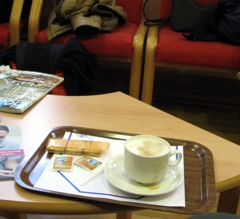
|
14 October 2009. The morning after I wrote that bit about students not getting good value I arrive in the lab and find panic because the computer projector in a big lecture theatre would not show slides from a USB key, so my boss was trying to explain ligand binding without slides. Furthermore the telephone in the lecture theatre seemed to have been disconnected. I and Remigijus Lape came to the rescue with my laptop, and all was well in the end. When the appropriate person was phoned they said “the problem had been reported”. It had not, however, been fixed. When there was local responsibility for lecture theatres this sort of thing didn’t happen (or if it did, it was quickly fixed locally). The “efficient central administration” once again failed (despite costing more).
Changes to teaching were needed and some of them are good. The common first year entry is good. What isn’t good is the explicit separation of teaching from research in the new system. Another thing that isn’t good is the official denial that separation is happening.
16 0ctober 2009. Lunch today with the new Dean of Life Sciences. For the first time in a while I came away optimistic about the future. She knows what she wants and I detect signs that the loss of morale, and the loss of altruism, that has occurred during the last three years might soon be ameliorated. [Note added in 2015: my optimism was entirely unjustified -in the next 5 years, nothing happened to improve morale.]
16 October 2009. Another nice thing today. The excellent blog of Jobbing Doctor (a real doctor in general practice) wrote a nice post about Beating back the march of Wibble. It ended thus.
"So Simon Singh, Edzard Ernst and David Colquhoun are my heroes today, as they are doing the job that ‘Sir’ Liam Donaldson should be doing."
Eminent company indeed. Makes the effort worthwhile.
26 October 2009. Got a very curious letter from UCL’s Public Engagement Co-ordinator. He suggested that I should discourage people from nominating me for the First Annual Provost’s Public Engagement Award. It seems me that that it isn’t his job to tell people who to nominate, just as it isn’t my job either
.
27 October 2009. Got a new date for operation already, 14 November, When the Marsden says ‘we don’t believe in waiting lists’, they mean it.
2 November 2009 Seem to be picking up a few more followers on Twitter now, up to a modest 570. Welcome particularly to Lord Paul Drayson, minister for science.
3 – 4 November 2009. Took the train to Manchester to give evidence in the case of Information Commissioner v University of Central Lancashire (UCLAN). This case after the Information Commissioner decided that UCLAN should release some teaching materials that I had requested. UCLAN appealed against the decision and the appeal is being judged by the Information Tribunal. I won’t say much about it until their verdict is delivered in a few week’s time. It was certainly a novel experience to find myself sitting next to the barrister who was acting for the Information Commissioner, and to follow her in questioning first the vice-chancellor of UCLAN, Malcolm MacVicar, then Peter Hyett (UCLAN’s Director of Finance) and their deputy vice-chancellor David Phoenix. It made one feel like a (very amateur) Perry Mason or, preferably, Rumpole.of the Bailey. “With respect, that is not what I asked. Will you answer the question please”.
I notice that a Freedom of Information web site run by a journalist, Matthew Davis, has been following this case (and here). Nice cartoons.
The experience was spoiled only by total exhaustion on 3rd November because the evening before the BMJ asked if I could to 800 words on the David Nutt case by first thing the next morning. I emailed it from train just as it was pulling into Manchester. Phew. Policy-based evidence seems to be getting some good mentions on Twitter. Download reprint pdf of The highs and lows of policy based evidence
6 November 2009. The David Nutt affair is getting somewhere, thanks to a very feisty response from the science community (including Martin Rees, president of the Royal Society) in defence of freedom of speech, and support from Lord Drayson (Science minister) and John Beddington (chief scientific advisor). And of course it’s not long since the glorious defeat of Carter-Ruck’s attempt to silence the Guardian with a super-injunction, and to stop reporting of the Minton report (read it here). It’s been a good month for the defence of freedom of speech by bottom-up action in the blogosphere. So it was a bit disappointing to get an email today from the Dean that ended thus
|
I must instruct all staff in the Faculty of Life Sciences that no one must make, publish or otherwise communicate any disparaging or derogatory statements, whether in writing or otherwise, concerning ***. |
Luckily it is not a matter that I wanted to comment on anyway, but gagging orders make me feel uneasy.
11 November 2009. Times Higher Education printed a piece with the title ‘Energy therapy’ project in school denounced as ‘psychobabble’. They’d phoned me a couple of days earlier to see whether I had an opinion about "Emotrance". As it happens, I knew a bit about it because it had cropped up in a course given to ‘naturopaths’ at the University of Westminster, described here. It seems that a secondary school had bought this extreme form of psychobabble. The comments on the Times Higher piece were unusually long and interesting. It tirned out that the inventor of "Emotrance", Dr Silvia Hartmann PhD., not only wrote books about magic spells and potions, but also that her much vaunted doctorate had been bought from the Universal Life Church, current cost $29.99. By the time of my last contribution to the debate, I was already at the Marsden Hospital on 13th November.
13 November 2009. Gave my 09.00 lecture to students about clinical trials, evidence and quackery, before admission to the Royal Marsden at 2 pm. Got a nice email from a student afterwards (rare but nice when it happens), But also had a student who came up after the lecture who told me I’d believe in homeopathy if I’d seen it in action. Sigh. When I asked if she believed in Avogadro’s number, she said "well I’m told to believe it". Sigh again.
14 November 2009. Left nephrectomy went ahead as planned this time. First time I’d had propofol for induction (anaesthetist said "don’t try this at home"). Not quite as dramatic as the older thiopentone, but worked fine. Next thing I knew I was in High Dependency Unit with a lot of abdominal pain. I thought, not for the first time, that control of post-operative pain is not a major success for pharmacology. Any dose of morphine that allows you to put together a sentence, leaves plenty of pain. Got swapped to oxycodone after 24 hours but no difference that I could tell.
At the Marsden, HDU beds are shared with Critical Care beds, and the first night I had a nurse sitting on a stool at the end of my bed all night. The standard of care could not have been better. By the next morning I was feeling good enough to get a nurse to take a picture with G1-Android phone and even managed to upload it to Twitter with a brief comment that the diluted moonlight had worked. It was intended for a few friends but later I saw that it had had 1500 views and spotted that Ben Goldacre retweeted it with the unrecognisable words
"bengoldacre: 5,000 years of intellectual and technical innovation keeps giant brain alive RT @david_colquhoun: http://bit.ly/26zA8Z"
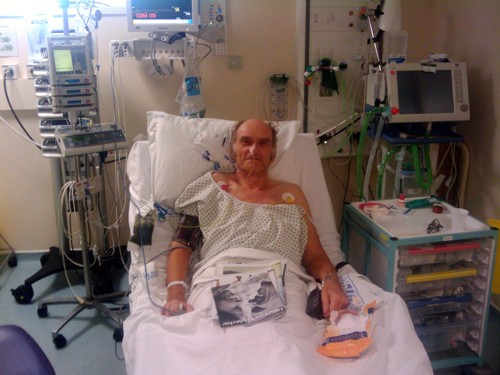
Having so many tubes attached leaves you unable to move much and isn’t exactly enjoyable but it is a triumph for real medicine. Once again, I loved the NHS
The drain hadn’t produced much so came out on Monday morning before going back to the regular ward for two more nights. Not exactly comfortable but what do you expect with a 21 cm gash across your belly.. Most people there were in a much worse state than me.
It was a bit irritating to be asked constantly to rate my pain on a scale from 1 to 10. If you are relaxed, in the right position, it could be near zero. If you cough, the pain would go off scale briefly. One was reminded, once again, how very hard it is to do clinical research in pain. It varies so much from moment to moment. I found it quite impossible to me sure how much effect morphine or paracetamol was having. I do know one thing though. Pharmacology has not solved the problem of post-operative pain to anything like the extent that patients would wish.
Glad to get home on Wednesday morning. I’d been wildly over-optimistic to think that I’d be in a state to give a lecture on Thursday (19th) or go to the SaS reception that evening. Pity. The lecture, on the history of pharmacology and physiology at UCL, will now be 2 weeks hence. It is designed to attract general intake students into pharmacology ot physiology specialisation on their later years. It has certainly been an eminent history but that is all swept aside in the present managerial culture.
In a few more weeks, I should learn whether my ‘small renal mass’ was actually malignant or not. Then I’ll know whether I was a victim of modern imaging technology, or a beneficiary of it. On the way out I was chatting to another "incidentaloma" case. He was half my age and had part of stomach and intestine removed as a result of imaging showing possible malignancy in investigations that followed a bike accident.
The pathology report. I’d underestimated the efficiency of the Marsden when I said it would take a ‘few weeks’ to get the pathology report. I got a phone call from a registrar this afternoon (19 Nov) with a summary of the results (full report to come shortly). I’d never really intended to talk about this so publicly: it came out quite incidentally after a comment from Dr Aust pointed out the acronym VOMIT, Victims of Modern Imaging Technology. Well, it turns out that I’m not a victim but a beneficiary. It was a classic renal clear cell carcinoma, fully excised with clear margins, 2.3 cm (the same size as when it was first spotted by the sharp-eyed folks at UCLH, four months ago. pT1a, Furhmann Grade 2/4 [full report here if anyone interested] The best result came last "Leibovich risk score zero". All the signs are good (e.g. see Sorbellini et al. 2005)The lifetime chance of recurrence is only 2 – 4 percent. Pretty good result.
Postscript. Because it involved one of the surgeons that I saw, I came across a description of an unrelated-donor kidney transplant between two friends who played jazz together. And they played in hospital only two days after the operation. Their rather moving story is here (search the page for ‘Diary of a Kidney Transplant’).
19 November 2009. First full day at home. Feeling good enough to write these notes and start on the 350 or so emails that await. First, the Information Tribunal wants more comments.
19 November 2009. David Hubel (Nobel Prize 1981) is greatly respected scientist. He published recently a wonderful analysis of how to get good science, The Way Biomedical Research Is Organized Has Dramatically Changed Over the Past Half-Century: Are the Changes for the Better?. The summary gives the idea.
“Biomedical research in today’s universities is usually carried out by groups consisting of a leader and 5–20 or so trainees. This is in sharp contrast with past generations, when research was usually done by individuals or small partnerships of two or three who thought up their own ideas and carried them out themselves. Group leaders today spend their time in an office, on a wide variety of administrative tasks, and have little or no time left for work at the bench. I recommend that leaders try to change the system by forming smaller groups and insisting on reserving their own time at the bench. I suggest that trainees, before beginning their research, look for laboratories where groups are small and independent, with leaders engaged actively in research.”
This way of working has characterised the three Nobel prizewinners who I’ve been lucky enough to know well, Andrew Huxley, Bernard Katz and Bert Sakmann/Erwin Neher. It is discouraged strongly by the current emphasis of science managers on high productivity, high “impact” research. That is why the culture of managerialism is destroying innovation and encouraging hype over originality. Of course it has all been said before, perhaps most eloquently by Peter Lawrence. Nevertheless in the (probably vain) hope that policy wonks might actually listen to people who’ve had success, I put a reprint on this server.
20 November 2009. Yet again, Laurie Taylor made my day. "Is Piercemüller Beau de Jour?". The allusions are, of course, to the Media Studies absentee academic, Dr Piercemüller, and to the recent Belle de Jour affair. The piece ends thus.
|
If “Big Bad Don” is unmasked as Dr Piercemuller, can we expect the university to impose sanctions? One senior member of our ever-expanding Human Resources team thought it unlikely. Speaking “off the record”, she said: “Now that an increasing number of academics are being asked to prostitute themselves in order to meet the new research excellence framework impact criteria, it would be invidious to discipline legitimate members of the profession.” |
Real prostitution is a choice. Prostitution imposed by government and Research Councils is not.
21 November 2009. Catching up with email. I was sent a link to the latest Lucy Kellaway column in the Financial Times, The return of managerial bone-headedness. She describes some examples of ‘training courses’, one of which is described as ” the most extreme example I have yet seen of a HR department infantilising the workforce and meddling in matters that should not concern it”. It is nice to know that these things happen in businesses as well as in universities. I particularly liked the second comment on this article.
|
I think you’ve missed the point of these codswallop seminars. The supine silence of those subjected to it indicates that they understand the point of them very well indeed. They are *not* and never have been provided to improve managerial skills, empathy or whatever the phrase of the moment is. They are forced onto an unwilling workforce in order to see who is willing to go along with what they are told, no matter how daft it is. It is a method of weeding out troublemakers and other independent minded people so you have a confused, terrified and demoralised workforce trained to smile and never complain; such people are much easier to manage.
|
This describes perfectly what happens in universities too. There is no shortage of private grumbling about “codswallop seminars”, but a great shortage of people who dare to speak out in public. Attributing motives is always dangerous. Cock-up is more common than conspiracy, and perhaps HR people really do think codswallop is useful. If that is the case it is hard to see how such dimwits have acquired such power. Either way, it is easy to see where savings can be made.
Talking of a demoralised workforce, the Book of the Week in Times Higher Education on November 3rd was "The question of morale", I havn’t (and won’t) read the book, but the comments are interesting. The extent to which managerialism has destroyed the morale of academics is clear for all to see. That strikes me as bad mamagement.
27 November 2009. Wonderful article in the Guardian by John Sulston, "How science is shackled by intellectual property".
1 December 2009 First full day out, only just over two weeks since nephrectomy. Got driven to Cambridge to talk to the Cambridge Science Society. A lot of fun, a decent crowd and it seemed to go down well judging by some nice comments on twitter, despite my having to sit down for a lot of the talk.
7 December 2009
Somebody pushed under my door a copy of the advertisement for the latest job opportunity from our ever-expanding HR department, with the comment “Best example of management-speak bullshit I’ve see for a while”. While the talk everywhere is of redundancies and cuts in staff, we see HR offering a job, on professorial pay,
“to review, develop and implement HR and OD strategies that will support UCL’s corporate agenda. Building on excellent staff development provision to date, a review is underway to refocus the service to implement organisation development support within faculties and departments, aligned to the business partner model.”
From the point of view of those doing the research and teaching on which UCL’s reputation depends, it is heartbreaking to see how much money is spent on hangers-on like this. It seems simply like bad management. The only saving grace is that the management is even worse at Imperial.
8 December 2009. The decision of the Information Tribunal was promulgated four days earlier than expected, so had to rush the write it up, at https://www.dcscience.net/?p=2485 . Not only was is a victory, but also gave me my one and only Perry Mason moment.
9 December 2009. I heard that I failed to win the Provost’s Award for public engagement, despite getting a lot of nominations. No disappointment there sincc i didn’t expect for a moment that i would. I don’t know yet who did but there are some pretty good efforts going on at UCL. I do think, though, that like other universities, UCL should make a bigger effort to separate PR (for the benefit of the university) from public engagement (for the benefit of the public).
16 December 2009. Afternoon at the British Pharmacological Society meeting. Got to talk ion channels at our poster.. Then to the BMJ party where I got to meet face-to-face many of the people I’ve hitherto known only by email. Amazed to be presented witth a joke prize by BMJ editor Fiona Godlee for (allegedly) having generated a record number of emails during the course of editing one editorial.
16 December 2009. Afternoon at the British Pharmacological Society meeting. Got to talk ion channels at our poster.. Then to the BMJ party where I got to meet face-to-face many of the people I’ve hitherto known only by email. Amazed to be presented witth a joke prize by BMJ editor Fiona Godlee for (allegedly) having generated a record number of emails during the course of editing one editorial.
18 December 2009. Damnation, missed three appointments today, including lecture to medical students at Kings’ on clinical trials and CAM. Something like 15 cm of snow overnight, and trains cancelled or very late’ Looks just beautiful though.




View from study window
18 December 2009. And while on the topic of global warming, here’s what we did in the last 6 months. (No, don’t ask what it cost.)
New high-efficiency condensing boiler
Solar water heating

And replaced the beautiful but gas-guzzling Citroen estate with Smart Roadster (698 cc, 62 mpg)

And later with hybrid Prius (1.8 L, 72 mpg and free of London congestion charge).

20 December 2009. I heard something rather shocking from a university well away from London, A young female academic has been required to send monthly progress reports, not to an academic who might be able to help, but to someone from HR who, presumably, knows nothing about science, or about teaching. What can an HR person do to help? Send them to a course on Brain Gym? Make a mental note to recommend anyone who asks to work somewhere else.
24 December 2009 Two huge parcels arrive from the solicitors acting for the University of Central Lancashire. Watch this space.
2 January 2009. John Sutherland (UCL’s emeritus professor of English literature) wrote in the Times about the underpants bomber, Umar Farouk Abdulmutallab. he had been at UCL and was president of the Islamic society at UCL between 2006-07 He relates (anonymously) the story of the time I was told, by a second year engineering student at UCL that I would be executed "when" Islam came to power in the UK. The occasion was a week-long exhibition staged by the Islamic Society in UCL’s South Cloisters, a main thoroughfare in the College. A lot of people stride through, eyes on the floor, or walk through the quad to avoid being accosted. Being an argumentative type I engaged them in conversation, but when I said I didn’t believe in their god, or any other, the threat was made. The student then asked for my name and department, and I’ll admit to hesitating for a moment before telling him. I didn’t really take it very seriously, if only because it doen’t seem very likely that the UK will become an Islamic republic. But when I mentioned the incident to a vice-provost he became quite agitated and wrote to the Islamic Society. Consequently I got a letter of apology from the then president of the Islamic Society, Qasim Rafiq, who was successor in that job to Umar Farouk Abdulmutallab.
|
Dear Professor Colquhoun, It has come to my attention that during the Islamic Society’s “Islam Awareness Week”, there was an incident involving yourself and a 2nd year UCL student, in which it was reported that the student claimed under an Islamic state, the views you held would be unacceptable and you would be subject to capital punishment. Let me assure you that this is not the mainstream Islamic view and is something the Islamic Society in no way promotes or condones. As Muslims we feel one of the ways in which a society progresses is through constant intellectual debate and discussion rather than the stifling of an opposition view and therefore the statement the student made is something that we can neither religiously or logically accept. The student clearly wasn’t an official representative of the Islamic Society, rather most likely a passer-by who decided to remain in the Cloisters area. We apologise for any misunderstanding or offence caused as a result of this and I take it upon myself to ensure that in future, similar instances like this are avoided by clearly distinguishing official Islamic Society student representatives from other students. Finally, I would like to take this opportunity to personally invite you to the Islamic Society events where you can raise any queries you may have regarding Islam to our speakers who are experts in their field. Regards, Qasim Rafiq President of the Islamic Society |
I wasn’t convinced that the student in question was a hanger-on, but neither did I think he was doing enything worse than fantasising. I was reminded of Richard Dawkins’ essay, written shortly after 9/11, Religion’s Misguided Missiles
" . . .testosterone-sodden young men too unattractive to get a woman in this world might be desperate enough to go for 72 private virgins in the next."
For the light side of a serious matter, see John O’Farrell’s spoof in Newbiscuit British science students leaving college unfit for terrorism.
6 January 2010 First post went up about the UCLAN material went up. A rather shocking lecture given to third year students about treating cancer with water.
10 January 2010. Spotted the latest Jorge Cham cartoon in Times Higher Education. It seems that postdocs, who are close to the action, are a lot better at spotting the sort of dishonest behaviour that is actively encouraged by the impact bollocks being spouted by heads of research councils.
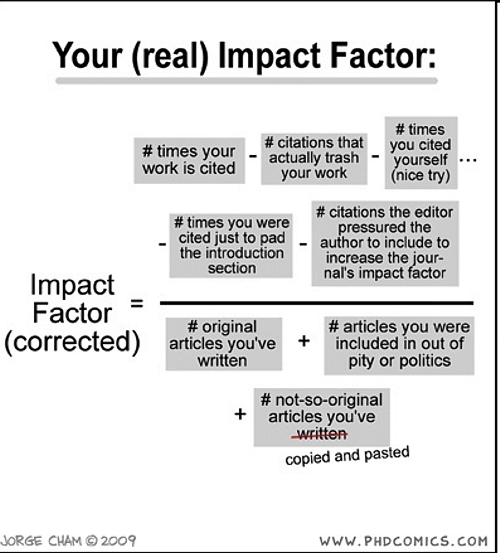
11 January 2010. Times Higher Education had an editorial about how people in humanities were nervous that the impact-bollocks agenda would favour science over arts. The first comment, from someone calling themselves "Losick", seemed to me to sum up the real situation succinctly.
|
Losick 7 January 2010 ‘Science’ has not triumphed and it will not be favoured by the impact agenda. The victors are the careerists, the profit-makers and the cynics, who are twisting notions of scientific value towards banal market capitalist visions of progress. Truth, at least publicly, is the victim, as both humanities and the sciences are warped into ‘technological solutions’ ‘innovation’ or empty cul-de-sacs of literary theory and theological casuistry. |
14 January 2010. The latest bit of genius for Laurie Taylor.
|
Smile! Here comes a management handout We’re already well ahead of the University of Leeds. This was the response of several leading members of Poppleton academic staff to the news that Leeds management staff had been instructed to include some gentle humour in their official communications to make “life richer for the reader”. Speaking on behalf of other Poppleton colleagues, Professor Lapping of the Department of Media and Cultural Studies said that nearly 90 per cent of all current management communications contained “richly comic elements”. So appreciated was this humour that it was common practice in his department to bring all staff together after the receipt of a new management document so that they “could have a jolly good laugh” and try to determine which “comedian” in the administration was responsible for its contents . |
Nothing very richly comic about the letter from the Dean which says that the Faculty of Life Sciences is getting ready to fire academics. It isn’t obvious why the Faculty of Life Sciences has been singled out (or why the letter didn’t mention that). A lot more to come on this topic, I suspect.
18 January 2010. Special meeting at lunchtime of the "Research Department of Neuroscience, Physiology and Pharmacology", otherwise known as "NPP" (smart bit of branding there uh?). Very considerable consternation followed rapidly after the dean’s letter about the setting-up of a redundancy committee for academics in the Faculty of Life Sciences. It is not obvious why only one Faculty (mine) is in line for redundancies. One thing that emerged strongly from the meeting was that even the head of NPP (a megadepartment with a total of around 500 people) has been unable to find out the answers to many of the questions about costs. Either the financial management is in a state of chaos, or heads of "research departments" are too lowly to be given access to the numbers. Both possibilities seem to suggest that we are suffering from abominable standards of management.
20 January 2010 A special meeting of the faculty of life sciences (FLS) was held to "explain" the need for redundancies. Howver it explained nothing at all. The notional debt arose from a number specified for ‘contribution to central services’, but this number appeared out of thin air. The dean was not able to say where it came from. The director of finance has been asked, and the reply is awaited eagerly. There seems to be a general feeling that there are savings to be made in HR, not least among those who spend their time sending childish emails about "well-being", a matter that came up recently in Times Higher Education (the comments are worth reading). I like the comment from one Mike Simpson who said "Knowing that my employer provides sub-Harry Potter magical nonsense like reiki and reflexology (alongside genuine health provision) actually reduces my mental wellbeing."
5 February 2009. Still involved in a prolonged email correspondence with UCL’s finance director. The aim is to discover how the "debt" was calculated for the faculty of life sciences. It may be that the calculation is quite fair, but the recent crisis has focussed minds on just how little we have been told about calculations tha affect our lives, and our jobs. Perhaps this lack of communication is the reason that a blog has appeared where UCL staff can discuss freely the problems that face us.
11 February 2010. Times Higher Education carried a big feature on academic freedom, "A clear and present danger", by Zoe Corbyn. They asked for a picture, but didn’t use what I sent, but another one that I don’t recollect having seen before. It was taken in my old office, in the days when I used to have a window.
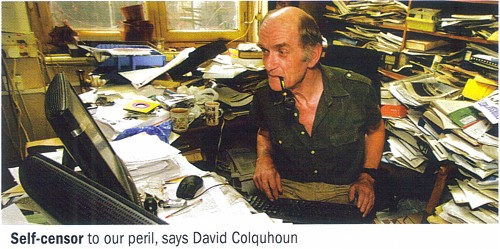
18 February 2009. Laurie Taylor hit the mark yet again in Times Higher Education. His piece was based on last week’s academic freedom feature but the way it ended seemed perfect for my quest to discover how the savings target for the Faculty of Life Sciences was calculated. It has certainly not been easy to find out but I’m almost there (I think). One would have thought it was not my job to explain the figures, but since nobody else seems to be able to, I’ll have a go, Laurie Taylor wrote thus.
“Jamie Targett, our thrusting Director of Corporate Affairs, condemned Professor Gunter’s threat to refer the matter to Academics for Academic Freedom as “provocative”, and described his defence as a perfect example of the academic obsession with rational argument that currently threatened to undermine the new management plan going forward.”
22 February 2010.. The report of the Parliamentray Select Committee appeared. Evidence check homeopathy damned the policy of both the Department of Health and of the MHRA. Predictably, the phone was ringing and I managed to summarise the embargoed copy that I got at 09.00 to make a post just in time before going to the BBC News Channel for an interview about it. Here is the interview. The comment about Chanel Number 5 seemed to go down well on Twitter.
22 February 2010. In the evening, went to a big event was held at Westminster Skeptics in the Pub in support of Simon Singh and other victims of the UK’s absurd libel laws, on the eve of Singh’s appeal being heard at the High Court. The introduction was by the superb speaker, Raymond Tallis, who had written about it in The Times (Test medicines in the lab, not in court) , followed by Simon Singh, Peter Wilmshurst, Evan Harris MP and others After the break, I did a quick piece about my own legal problems with the New Zealand Chiropractors I was a lot luckier than Singh and Wilmshurst because they backed down.
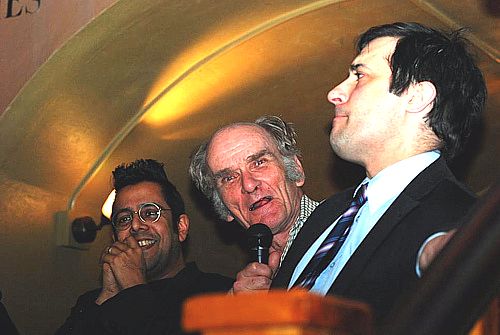
Simon Singh, DC and Evan Harris MP
23 February 2010. More fallout from the SciTech report. It was widely reported in the newspapers, but the time-consuming event was some truly appalling science reporting from the BBC. Their web report was very biassed towards the view of alternative medicine, though it improved slightly after a phone call from an MP to point out its deficiences.
The BBC hit a new low by posting a video of a woman who claimed to have cancer cured by pills that contain nothing whatsoever. with no balancing view about the absurdity of this claim. She managed a plug for her web site and, she misrepresented the evidence as homeopaths always do. This interview was a major disgrace.
Worst of all, though, was “Call You and Yours”. Play mp3 file (43.6 Mb), and listen at your own risk (there is a danger of bursting a blood vessel). A detailed critique of this program will be posted soon. The BBC’s coverage will be the subject of formal complaints to both the BBC and Ofcom. It is heartbreaking that the BBC should endanger public health, and set back science education by such appalling reporting.
24 February 2010. A big meeting of the Faculty of Life Sciences at which the dean told us the criteria for firing academics. It is astonishing that the answers to most of the obvious financial questions seem not to be known. The management of this place leaves much to be desired. Morale down yet another notch. No wonder a colleagus, at present abroad, said
"See you on Friday (assuming I still have a job and my lab hasn’t been taken over by UCL Global Globality Enterprises Inc)"
4 March 2010. Had some interesting discussions with people involved in the "Grand Challenge of Wellness". For most people the word "wellness" conjures up pictures of ayurvedic mud baths offered in the wellness centre in expensive hotels. I’m intrigued to know whether there is really something that UCL can do to increase the sum of human happiness, or whether this is another cheap PR gimmick that will consume time and money, and embarrass UCL. I’m rather inclined to the latter view at the moment.
10 March 2010 Met the head of French, in the nearby RADA café. Modern languages are threatened with the same sort of top-down management structure that has been inflicted on FLS in the last three years, which promises to disempower academics in the way that has already happened in Life Sciences. Side benefit was that I bumped into Jonathan Miller there, whose production of L’Elisir d’Amore |I saw at ENO recently.
12 March 2010. The latest gloomy rumour is that there are plans to merge clinical and life sciences, contrary to the recommendations of the last internal review. In the last couple of days, I’ve heard three of the best people in Life Sciences making plans to leave.
One despairs of ever convincing the managerial mind, that if you treat the people who do the work badly it is the best of them that leave. They are the ones who have the option. These changes take years to occur and even longer to reverse. In the longer term, enormous harm could be done to UCL if the provost doesn’t start to listen to those who do the research and teaching.
15 March 2010. An interesting visit to talk to the head of the Health Professions Council, Marc Seale. More of this later
16 March 2010. The revelation in the Guardian that UCL’s provost gets the 2nd highest pay in the UK brought forth some trenchant comments in the Guardian, and below
16 March 2010. The provost’s weekly newsletter (3857 words) refers to the discontent in the Modern Languages departments, which are threatened with a reorganisation not unlike that which has caused such chaos in Life Sciences, The provost said
- “The Modern Languages Review consultation is similarly still under way. Indeed, at Academic Board I agreed to extend the consultation period to allow ample time for thought about all alternative options. It is an open and transparent process. The relevant documents, plus Frequently Asked Questions, are available here on the UCL intranet.”
It gives me no pleasure to point out that the same assurances were given in Life Sciences. Many meetings were held, and the opinions of academic staff had no discernible effect on the outcome. We were driven to the conclusion that the consultation was entirely sham.
19th March 2010. An envelope was pushed under my door. It contained a photocopy of an advertisement from out very own HR department. It seems that while the Faculty of Life Sciences is faced with redundancies (already three of the best support staff are leaving), HR is advertising two jobs, on near-professorial salaries (£50 -55k). And the job description says they should be qualified in NLP (neurolinguistic programming) -a form of highly commercialised psycho-babble quackery. Perhaps the most interesting thing is the fact that the person who drew it to my attention was sufficiently intimidated that they wanted to remain anonymous, even from me. It made useful material for my talk in Edinburgh on How quackery corrupts real science.
26 March 2010. An interesting essay has appeared on the ucllifesciences blog. It was written by a Life Sciences academic and it shows the extent of the demoralisation that has been produced by reorganisations over the last few years. Bad management can, in the short run, disempower academics, but in the longer run this management style can’t win. The good people will leave and we’ll be left with those who can’t get a job anywhere else.
30 March 2010, Another of those absurdly bossy emails from the head of HR. This time about the rail strike scheduled for 6 – 9 April. If you cannot get to work because there are no trains, you are invited to take annual leave, or to contact your "line manager" to get permission to work at home. This woman has not the slightest idea how academia functions. If her power is not reigned in she will contribute to its destruction.
8 April 2010. Sellers of the Big Issue work regularly outside Euston station, through which I travel every day. The Big Issue is a magazine that is sold by homeless people to enable them to help themselves. One particular seller was always accompanied by a very appealling mongrel dog. Evidently, the dog was not his only friend, because tonight I noticed flowers taped to a tree as I went into Euston.
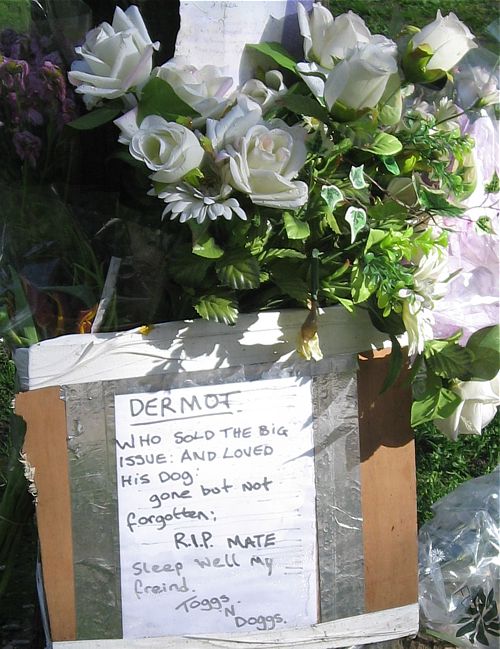
A week later, got a picture of Dermot’s dog, Ralph (with new canine friend) . He’s the paler one at the top, with the fine eyebrows

15th April 2010. Overnight on the sleeper train to Edinburgh (again) for talk to the Edinburgh Skeptics in the pub. I didn’t expect much audience because they charged £4 to get in and it was in competition with the first TV debate between party leaders. In fact it was pretty full, mostly young people, and I certainly enjoyed talking about How quackery corrupts real science.
Naturally it started with a new slide to commemorate this week’s momentous victory this week.
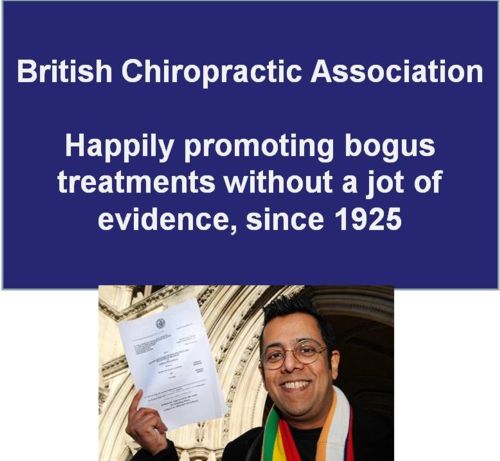 s
s
The Guardian has now republished the original article, and Goldacre has explained why it matters so much: Libel laws: a lethal muzzle of medicine.
16th April 2010. Back home the next night, again on sleeper, and spent day in the lab, part of it preparing for debate at Royal Society of Medicine, seconding Edzard Ernst. That was fun, but not as much fun as the Edinburgh skeptics. Too many dark suits and too many believers in magic medicine.
17th April 2010. No sooner than I’m home from Edinburgh than someone who was at the meeting mails me some prime HR bollocks from the University of Edinburgh. They are offering academics a course on “Influencing skills”. They seem to forget that academia is not about exerting influence regardless of truth. They should leave that sort of stuff for bankers. As so often, the language in which it’s written bears only a superficial resemblance to English. My favourite bit is that you are assured that at the end of the course you will
“Have developed an influence strategy for a critical influence situation at work and implemented this on return to work”
The people who write this sort of stuff seem quite unaware of the derision that it evokes. The financial problems of universities could be improved if they were just fired (and that would improve the intellectual standards too).
19 April 2010. A perfect spring day made still better by reading the comments in the excellent legal blog written by David Allen Green (aka Jack of Kent). His interesting post on the relationship between journalism and blogs included an unsolicited testimonial.
David Colquhoun, a distinguished professor and Fellow of the Royal Society who has taken to blogging about bullshit with the fire and deftness of a pharmacological George Orwell.
But actually it is David Allen Green who’s been shortlisted for the Orwell prize, not me. And quite right too.
It seems that Lionel Milgrom has a lower opinion of me than that, as described in Skepticat’s hilarious account of the 2010 homeopathy conference, As the panic, they are turning a bit vicious I fear.
20 April 2010. Had lunch with the person in CALT in charge of “internationalisation of the curriculum”. The meeting occurred because, in reply to a question about how one should “internationalise” lectures on stochastic process, the dreaded pomo words “culturally determined” had appeared. The discussion was amiable but it emerged that she hadn’t got the slightest idea about science, and failed to produce a single example of what all the fine words actually mean (just as vice-provost Michael Worton failed to explain). Well-meaning although this initiative undoubtedly is, it still strikes me as the sort of hot-air that UCL can ill-afford in difficult financial times.
22 April 2010 Crispian Jago’s wonderful new skeptic trumps cards got round to me. Yikes.
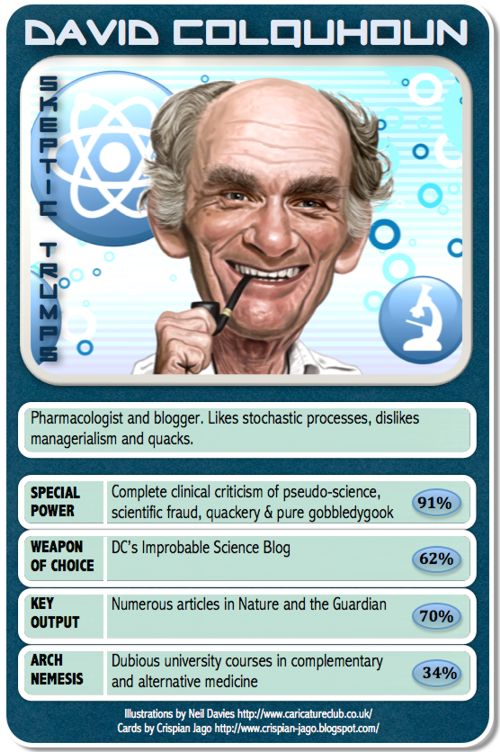
24 and 25 April 2010. Finished two new posts on the ucllifesciences blog. Although the links were circulated only locally, they got 1400 views in the few days after posting.
30 April 2010. Went to a very fine house facing Regent’s Park, for a reception (well actually fund-raiser) for the admirable Lib Dem MP for Oxford West, Evan Harris. He needs last minute funds to combat poisonous leaflets circulated about him by evangelical christians and by a convicted animal rights activist. Give something at http://www.evanharris.org.uk/pages/help-Evan.html
Then on to the goodbye party for departing journalist Zoe Corbyn, who is leaving Times Higher Education. I’m told her successor is under instructions to read this blog. Thanks Zoe.
5 May 2010 Yet another radio interview about homeopathy (yawn). This time it was BBC Radio Oxford. I was pleased at the time to get in a plug for Evan Harris on the eve of the election. In retrospect, I could just have lost 162 votes for him, the tiny margin by which he lost his seat. [Radio Oxford interview (mp3 file].
6 May 2010. After voting, went up to Edinburgh again, by train of course. Dinner with the North British Pain Society. An interesting lot of pain consultants and nurses. Good debate on 7th May at the Royal College of Physicians of Edinburgh, on Queen street in the elegant “new town”. Then Saturday with friends, and son Andrew, who came down from Aberdeen for the day. Sunday, walked round the beautiful Botanic Gardens in Edinburgh, with ex Royal Soc Research Fellow. Lunch there and then back home on train.
10 May 2010 Westminster Skeptics in the Pub to hear Brian Deer, the superb investigative journalist who rooted out the truth about Wakefield and MMR. Deer was terrific. The amount of detail he’s unearthed is amazing. As a bonus, we had an excellent defiant speech from Evan Harris about how he plans to win back is seat in parliament.
|
And to top an excellent evening, I discovered that, the pub sold deep-fried mini-Mars bars. I hunted Aberdeen & Glasgow for them but eventually found them just off Victoria Street. Yummy with ice cream. |

|
17 May 2010. An email alerts me to the fact that the Royal London Homeopathic Hospital (still, disgracefully, part of the UCL Hospitals Trust (that’s NHS, not UCL) is advertising for a “research coordinator”, at a salary of up to £46k. These hangers-on are a sufficient waste of money in real research. The fact that the UCLH Trust seems to think this is a sensible way to spend money in the present financial climate smacks of maladministration
18 May 2010. Bugger. A routine check showed I have managed to get atrial flutter. One thing after another. So spent 3 days in UCLH for a bunch of checks. The VQ scan showed no sign of pulmonary embolism, so not too serious. Now back on to anticoagulants before cardioversion in a couple of weeks. Forced to cancel Leicester Skeptics in the Pub talk at last minute. Couldn’t escape from hospital.
20 May 2010. Discharged from hospital just in time to give scheduled ‘endarkenment ‘ talk at Institute of Ophthalmology. Someone in audience said later they wanted to co-author a book on that topic. Interesting.
23 May 2010. Went to open day at Rothamsted Research. Got to play with the Millionaire calculater that R.A. Fisher had bought in 1939 for £200 (about one year’s salary then). Some pictures of Fisher here. It was a lot harder to use than the electromechanical calculators that I started with. Also had a tour of the famous Broadbalk field where crop trials have been done for 150 years (it features in Fisher’s book, Design of Experiments, 1935)

Millionaire calculator bought by Fisher in 1939

Field trials at Broadbalk field

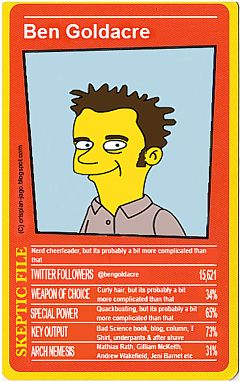
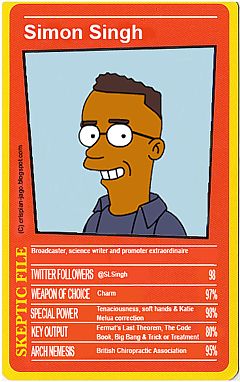
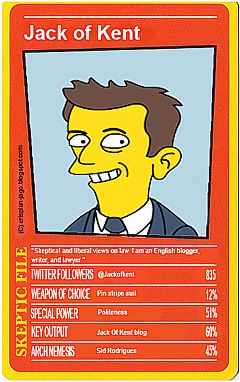
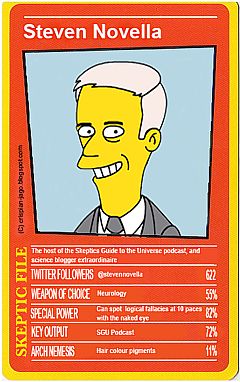
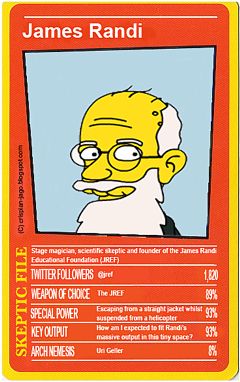
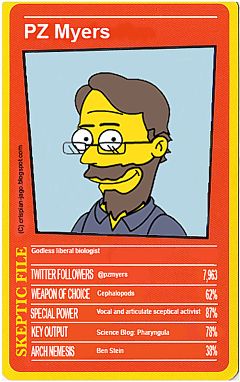
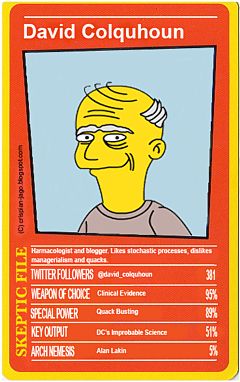
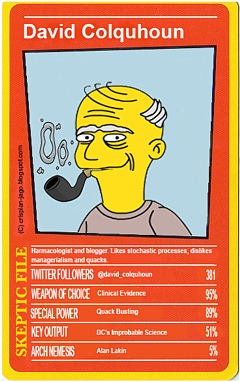

Interesting David that in your link to the letter you received in June 2008 about the ‘Director of Grand Challenges’ (this must surely be from some obscure Gilbert and Sullivan work?) there is mention of UCL being a ‘…world-class research……’ etc.. I am not sure precisely what is meant by this HR term. It is used also to flannel around NHS Primary Care Trusts with the notion of ‘world-class commissioning’ A recent (9th June) item on
http://www.healthcarerepublic.com/news/GP/LatestNews/911739/PCTs-increase-GP-involvement-patient-engagement/?CMP=EMC-DAILYNEWS
declared that ‘PCTs must increase GP involvement in patient engagement’
A report from the ‘Independent pro-patient group the Picker Institute’ sugessted:
‘World Class Commissioning requires that proactive, continuous and meaningful patient and public engagement should drive commissioning decisions’.
Whilst I am sure the Picker Institute is an excellent organisation (are there groups who are against patients?) I have no idea what is meant by all this other-planet talk: they might just as well talk about meridians and energy flows for all the sense it makes.
Picker’s director said, ‘[PCTs] are only beginning to use diverse methods to reach wider circles of the community. They face a key challenge in getting their own frontline staff and clinicians to engage patients and feed into commissioning priorities.’ What?
My response was as follows:
‘What precisely do they mean by all this? I would like to know so that I can comment from an informed position. It would be helpful to have this set out other than in management-speak. Maybe PCTs should stop meddling and let doctors and nurses and all those involved in doing real and excellent work in the NHS get on with their jobs’.
27th June
Ouch. While the media frenzy at Michael Jackson’s death is seriously OTT, David, he is a significant “figure in the culture”, at least for someone of my vintage.
I first encountered Michael J via a “Jackson 5” cartoon show in the early 70s, and his music was definitely an ever-present part of the backdrop of my teenage years and early 20, so probably a good decade and a half. Of course, the later 24-carat weirdness, and then the child molestation allegations and court cases are something else. It all adds up to a talented but very tragic figure.
I am puzzled as to why his death is still at the top of the news, though. But then, if it wasn’t there, we might just have some grisly crime story instead. What’s that line? Ah yes:
I do agree, though, that one could argue a case for this, as with Lady Di, exemplifying the increasing “tabloid-ification” and “celebrity-trivia-ization” of the formerly vaguely high-brow bits of the press and broadcast media.
PS And the Guardian has now given us an editorial (to be fair, a not totally silly one) on Michael Jackson.
Dr Aust
No doubt it depends on one’s history, I went through traditional jazz (early teens) to Mulligan and Brubeck (late teens) and then into classical. The nearest I ever got to pop was Leonard Cohen and Tom Lehrer, I think that I had never consciously heard Michael Jackson until the clips on the radio after he died. I’m not convinced that I missed much.
When it comes to pop music, apart from not liking most of the music much, I always have the feeling that I’m being manipulated by big business. I don’t like that feeling at all.
It is interesting how peoples’ personal “music spectra” overlap. I have always been a big fan of Tom Lehrer, as my father owned all the old LPs and I got to know them very well when I was about 13. I used to be able to sing many of the songs by heart, and I now find the fragments that are left come in handy for entertaining Jr Aust. Actually, at one point I could recite the whole of the Elements Song, though I can now only remember the first verse.
And I like Leonard Cohen too.
As someone said on Any Questions today, when you hear about musicians like Michael Jackson dying, part of your feeling obviously relates to your own nostalgia for, or feeling of loss relating to, the time of your (younger) life when the particular music was part of it. So it can be very odd to see tremendous outpourings for musicians one has no personal “connection” with. I remember feeling very non-plussed at the outpouring when Elvis died in 1977, since I had no famililarity with or connection to his music – while John Lennon dying only a few years later had much more of an impact on me, since I had listened to my parents Beatles’ albums, and even lived through a youth culture “60s revival” in about 1979.
i thunk the fuss over MJ’s death is a case of wht socioligists call moral panic.
I bought (Mississippi) John hurt’s 1928 recordings while a student a UCL and still have it. All my musical heroes were dead long before I knew of them!.
Patrick West’s book “Conspicuous Compassion” is a good (if worrying) description of this trend. http://www.civitas.org.uk/hwu/prcs34.php
4567 words of newsletter, eh?
Every time I think I have given the correct (ever-increasing) estimate for the prolixity of Vice-Chancellorial bulletins, I keep finding I have underestimated.
Where will it end, do you suppose?
Any advance on 4567? Do I hear five thousand?
DC that (6th November) looks like a real Stalinist gagging order. In effect it implies that no one is allowed to comment on whatever the topic is, even in private. ‘disparaging’ and ‘derogatory’ are often subjective and freedom to criticise should be valued and upheld. Whilst I have no connection at all with UCL, I find that order to be extremely disturbing.
Maybe you are not supposed even to put this comment on your site…..
Good and encouraging to read about your successful recovery, particularly as I’m scheduled to have a heart valve fixed on Monday. It’ll mean several weeks recuperation at home, during which time I plan to get blogging – my first amateurish post went on line yesterday at http://steve-mossblog.blogspot.com/
{re 19th November]
It was interesting to read Hubel’s article. I also read a biographical article by Martin Raff recently where he points out that, 40 or so years ago, there was so much to be discovered that it seemed almost easy to make important discoveries. I wonder whether any of the changes today are connected to the increased number of scientists competing for – possibly – less to discover as well as diminishing financial resources.
Hubel only hints at this, but one thing that really annoys me is that there are papers with authors who have contributed next to nothing to the work, neither intellectual, financial, nor experimental. IF the journals required a brief statement of contribution, maybe this would stop. Nobody would want it to state “Prof X contributed absolutely nothing”.
@GDP
I wonder if you are right. There is plenty left to know for heavens sake, but perhaps each step gets more difficult with time?
I couldn’t agree more about guest authorships but the present system encourages such abuses. The temptation should be resisted of course but that seems to be too much to ask. Some journals do require who-did-what statements, but some of the statements seem to be to be, ahem, a bit imaginative.
It seems to me that the RAE did great harm to original science, and worse still, corrupted it. The REF promises to be worse,
I once asked a senior research council person if he thought that Bernard Katz could have done what he did under the present system. I was told that he would have adapted to it. I presume that means he would have sat in an office and spent time on leadership courses, instead of sitting next to Ricardo Miledi, doing experiments. It is precisely because he spotted things on the oscilloscope that lesser mortals would have missed that allowed him to make his great discoveries.
Sorry to hear you’ve been unwell, DC, but I must say the picture looks very impressive.
I thought Hubel’s advice to young scientists was a little bit unrealistic. I fear that if you did try to submit a proposal on an idea you just want to follow-up on your own, you just wouldn’t get funded (unrealistic goals for such a small “team”) and that would be the end of that. The one exception may be the Bill and Melinda Gates foundation : proposals have to fit on two pages and they are reviewed double-blind. That is reviewers don’t know who submitted the proposal – so the idea is judged on its own merits. If more funding agencies worked like this, then things might change.
DMc
Re the 21 Nov comment:
My favourite summary of the in-house seminars came from the ex-Soviet academic commenting here.
Re. Hubel, I think the only thing that would actually change the system back to the way he describes would be a vast “contraction”, i.e. far less money. And even then I fear the Universities will think that the route to success is to have less people, all running large-ish research groups. Though in the UK context “large-ish” would really only mean 6-8 people.
Nonetheless, I think the time of Professors who did their own experiments is gone, and the saddest thing is that even Bernard Katz might well have “adapted”, like the Research Council person DC mentions said. Whether BK would then have made the sameground-breaking discoveries is another question.
Of all the Professors I have encountered over a 25 yr career in British science, I have only met three who carried on doing experiments themselves as Professors, and only a few more who even came and sat in the lab while experiments were going on. You find slightly more people who still do experimental work (sporadically) among ageing lecturers / senior lecturers – but their failure to reach Professor tells its own story. Basically, though, the current English model has people out of the laboratory for good 5 years or so into their tenured post (say around age 35-40 depending on when they got the academic job). This is typically because they no longer have the time amid the multiple scramble of teaching, admin, grant-chasing and managing postdocs and PhD students.
[…] Too bad that laughing is still a bit painful. […]
Glad to see you are doing so well post-op, Prof. Colquhoun. Continued good wishes to you and your family.
Enjoyed your comment on the GluR crystal structure news item at Nature.com, David. Are you going to reproduce it here?
So what are the criteria for firing academics at UCL, David? Just research productivity? Or grant earning? Or are they factoring in teaching too?
Oh yes teaching is in, and also “enabling”, whatever that is. My best guess is that “enabling” means spending your days at committee meetings (the best substitute for work). In fact the criteria are so broad that it’s hard to think that enough people fail to satisfy them to solve the alleged debt problem.
“Enabling” always makes me think of the word used in its counselling/psychotherapy/addiction problems sense. Allow me to quote from the Wiki page:
So are senior academics like Deans the enablers, for allowing the spread of all the HR-alike bureaucratic idiocies and management-by-spreadsheet to which this blog provides eloquent testimony…
…or are all academics the enablers of the Deans and senior types for letting them get away with the above…?
Presume you have been “enjoying” this story from today’s Grauniad, David…?
I was impressed to see that UCL Provost Malcolm Grant’s salary has topped £ 400K, even without the £ 20K bonus. Though having read one or two of his weekly email newsletters, I guess that salary may just reflect his being paid by the word…
PS Apparently UCL’s Provost is only the second best paid VC. Someone writing as “Haslitt” posted the following comment after the Guardian article, which I think will amuse anyone who has been following David’s bulletins on recent events at UCL:
At King’s whenever we are in the top 10 in a list it is all over the web page and we get excited e-mails about it. The fact our Principle is in the top 10 salary list has not been mentioned, funny that, perhaps the powers that be are too busy cutting posts of the less well paid!
David – Philip Moriarty told me about this blog (specifically, the discussion of lecturer “training”). I have to say I have never come across an on-line forum that is so well-mannered! Mind you, my main experience of such fora has been CiF and the Independent’s version of it, so maybe I have been looking in the wrong place. This is what the Internet *should* be used for!
Sorry to hear about Dermot. I am also at UCL but do not go via Euston so I never met him. Can I persuade you to divert your journey slightly so as to cross the Euston Rd via Euston Square tube station underpass? Joanne, the BI seller there, is a sweetie and deserves our support.
With respect to your 17th and 20th April items, David, did you read this in the Times Higher – the best thing they have printed for several years.
The phrase which stuck in my mind was:
I cannot think of a single academic I know who says they are doing less worthless administrative box-ticking now than five years ago.
Funny, that.
@Dr Aust
Thanks for reminding me about that article. I’m working on another piece on that topic in connection with the fact that my own Faculty has been asked to take a 10.4% cut, whereas HR has been asked to cut by only 5.7% cut. This despite the fact that my faculty generates more income per academic than any other at UCL,
Something wrong, surely.
I am, also, concerned about the proposed cuts and their subsequent effects. However, as someone who has stepped out of the academic world, it is not why I am on this site. I am much further behind many of you and need to get up to speed with it. So. Answer me this.What is Science? Define, please. It might help me understand therefore my posts make a bit more sense. Thanks.
@isobelmet
Most people would describe science as a method, rather than as a body of knowledge. The Wikipedia article gives a good description http://en.wikipedia.org/wiki/Science
[…] a university a good reputation. It is not PR, not silly displays at graduation ceremonies (and here) and it is not a fancy web site. In fact a university as a whole does not really have a […]
I thought you said antioxidants play no role in the body whatsoever. So, what is this about?
http://www.dailymail.co.uk/news/worldnews/article-1094945/Heart-warming-news-Aussie-doctor-claims-hes-created-worlds-healthiest-wine-cleans-arteries.html
@Iamconfused
I work at UCL, not the University of Queensland. That’s a different David Colquhoun. I’ve often thought of doing a blog post about him, because he gives the appearance of being in thrall to the nutriceutical business.
“An email alerts me to the fact that the Royal London Homeopathic Hospital (still, disgracefully, part of the UCL Hospitals Trust (that’s NHS, not UCL) is advertising for a “research coordinator”, at a salary of up to £46k.”
Yikes! Can I apply for that? I know nothing about homeopathy which by my reckoning makes me perfect for the job.
Will they throw in a chauffeured car too?
Hmmm. More than I earn.
Job: Organise research into magic.
Required: ability to keep a straight face.
Sadly I think that second one would rule me out.
Wouldn’t it be great if the person who got the job immediately set about organising properly controlled clinical trials whilst vowing to sort out once and for all whether homeopathy really worked (it doesn’t) and whether the NHS should be funding it (it shouldn’t).
I guess anyone proposing to do such a thing would immediately be turned down at interview.
Maybe they could cut costs by hiring one person to cover both this and ongoing studies into whether Father Christmas exists.
Jonathan
Well in fact he does.
My youngest daughter believes in him. Thus he exists.
What I propose is that in our imagination (not mine anymore, alas) he exists in the same way that Neptune exists, i.e. I have never seen Neptune with or without a telescope, so for me its existence depends on some collective authority.
In the case of my daughter the collective authority (i.e. not just me by the way) is valid.
The last sentence seems to be missing from the post above:
When she is older she will re-evaluate the evidence, but for now Father Christmas exists.